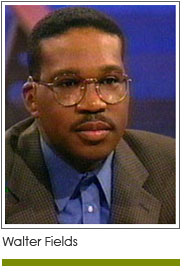 This year marks the 26th year the nation will celebrate the Martin Luther King Jr. National Holiday. For those of us who supported the authorizing legislation by Rep. John Conyers (D-MI), signed petitions, attended rallies and participated in a march led by entertainer Steve Wonder on a freezing winter day in the nation’s capital in support of the holiday, the day holds special meaning. The idea for MLK Day, as envisioned by Conyers, who introduced the bill in Congress immediately after Dr. King’s assassination, was for the nation to reflect upon the great civil rights leader’s legacy and recommit to the principles the Nobel Peace Prize winner espoused.
This year marks the 26th year the nation will celebrate the Martin Luther King Jr. National Holiday. For those of us who supported the authorizing legislation by Rep. John Conyers (D-MI), signed petitions, attended rallies and participated in a march led by entertainer Steve Wonder on a freezing winter day in the nation’s capital in support of the holiday, the day holds special meaning. The idea for MLK Day, as envisioned by Conyers, who introduced the bill in Congress immediately after Dr. King’s assassination, was for the nation to reflect upon the great civil rights leader’s legacy and recommit to the principles the Nobel Peace Prize winner espoused.
Sadly, in the time since his death in 1968, Dr. King has been misquoted and taken out of context, his work misappropriated by those who oppose the very ideals he championed, and his legacy reduced to a single passage of a speech that does not wholly reflect the King who died in Memphis. Most offensive has been the attempt to “soften” his indignation at injustices borne by racism and classism in America by creating an image of tepid pacifist that does not jibe with his sense of moral outrage against what he considered to be unacceptable inequities in our society. This image also does not reconcile with his fiery condemnations of racism and his willingness to put his life at risk to challenge legal segregation in the south and de facto segregation in the north. The embrace we see of King in death was not present when he walked among us and many whose limited understanding of Dr. King is “I Have a Dream” serve to dilute the totality of his life work.
The foundation of Dr. King’s work was his training as a Christian minister and his spiritual investment in the gospel of Jesus Christ. It is true that King was influenced by the likes of his father Rev. Martin Luther King, Sr., Mahatma Gandhi and theologian Reinhold Niebuhr, Morehouse College educator Dr. Benjamin E. Mays and found common ground with pastors such as Rev. Gardner Taylor and Rev. Ralph Abernathy. His ministry and advocacy, however, was foremost shaped by the message of Jesus to tend to the needs of the “least of these.” By accepting this as his calling, Dr. King placed himself at odds with the status quo as he was peacefully yet defiantly opposed to the caste system of Jim Crow. And like Jesus, he spoke truth to power and did not spare words in his condemnation of the abuse of the poor and expressed profound sadness over the plight of those subjected to the cruelties of racism. King was no daydreamer or idle speechmaker, but an activist of keen intellect and courage; a visionary who had an agenda.
There should be no confusion today over where Dr. King stood or the work he felt was necessary going forward to improve the human condition in our country and throughout the world. He left us a blueprint in his last published book, “Where Do We Go from Here: Chaos or Community?” Let’s be clear. Dr. King supported the idea that there was an important role for the federal government in addressing poverty and that money was necessary to address economic disparities. It is why he was prepared to lead the Poor People’s Campaign at the time his life was cut short by an assassin’s bullet. He supported affirmative action and was calling on American corporations to be more responsible in their hiring and treatment of workers. He supported the labor movement as was evident in his aligning with striking sanitation workers in Memphis. Dr. King was a champion of public education and called for more investments in schools in poor neighborhoods while also pushing the idea of creating “education villages” that would support learning in the wider community. He supported immigrants and activists such as Cesar Chavez drew inspiration from King. He refused to support militarism and his stand against the Vietnam War would likely have been repeated against U.S. military engagements in Iraq and Afghanistan had he been alive. He was not naïve politically after having gone the rounds with some of his era’s heavyweights in the nation’s capital. King supported Black political empowerment but was clear in his disappointment in the services many Black elected officials provided their constituents and was equally adamant that government officials had to be held accountable, no matter the color of their skin.
At a time when poverty is often hidden from public view, and when racism and discrimination based on gender is manifest in the deep recesses of institutions, we must redouble our efforts to uphold the real legacy of Rev. Dr. Martin Luther King, Jr. If we are to truly build the beloved community that King saw from the mountaintop the evening before he was assassinated, we must return our focus to the “least of these” among us.
Walter Fields is the Executive Editor of NorthStarNews.com.














